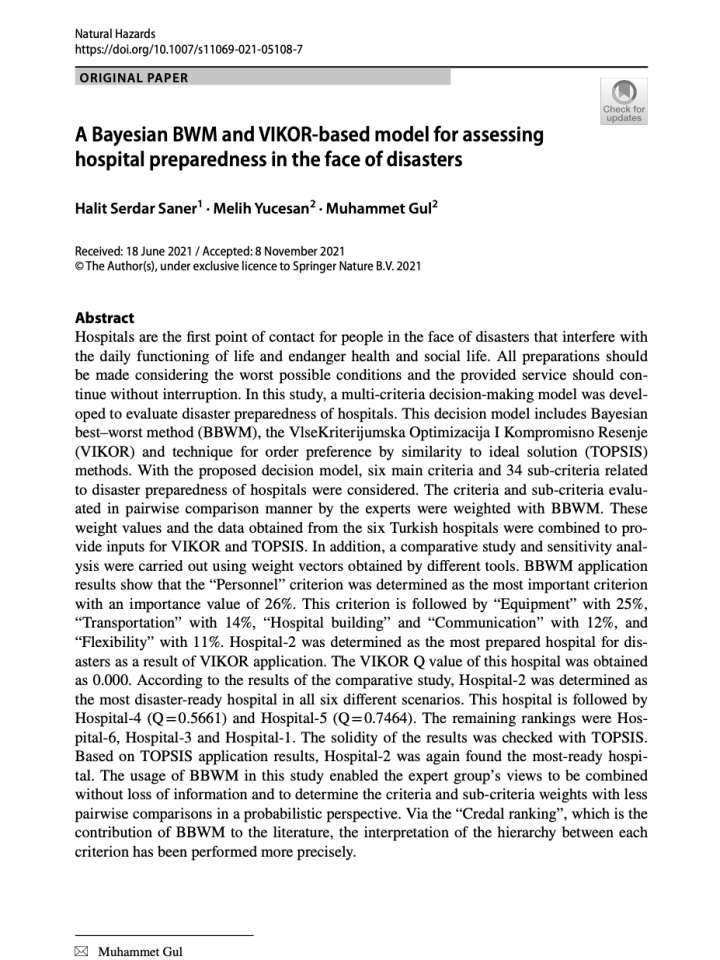A Bayesian BWM and VIKOR-based model for assessing hospital preparedness in the face of disasters
This paper develops a Bayesian BWM and VIKOR-based model for assessing hospital preparedness in the face of disasters. Hospitals are the first point of contact for people in the face of disasters that interfere with the daily functioning of life and endanger health and social life. All preparations should be made considering the worst possible conditions and the provided service should continue without interruption. In this study, a multi-criteria decision-making model was developed to evaluate disaster preparedness of hospitals. This decision model includes Bayesian best–worst method (BBWM), the VlseKriterijumska Optimizacija I Kompromisno Resenje (VIKOR) and technique for order preference by similarity to ideal solution (TOPSIS) methods.
BBWM application results show that the “Personnel” criterion was determined as the most important criterion with an importance value of 26%. This criterion is followed by “Equipment” with 25%, “Transportation” with 14%, “Hospital building” and “Communication” with 12%, and “Flexibility” with 11%. Hospital-2 was determined as the most prepared hospital for disasters as a result of VIKOR application. The VIKOR Q value of this hospital was obtained as 0.000. According to the results of the comparative study, Hospital-2 was determined as the most disaster-ready hospital in all six different scenarios. This hospital is followed by Hospital-4 (Q = 0.5661) and Hospital-5 (Q = 0.7464). The remaining rankings were Hospital-6, Hospital-3 and Hospital-1. The solidity of the results was checked with TOPSIS. Based on TOPSIS application results, Hospital-2 was again found the most-ready hospital. The usage of BBWM in this study enabled the expert group’s views to be combined without loss of information and to determine the criteria and sub-criteria weights with less pairwise comparisons in a probabilistic perspective. Via the “Credal ranking”, which is the contribution of BBWM to the literature, the interpretation of the hierarchy between each criterion has been performed more precisely.
Explore further

